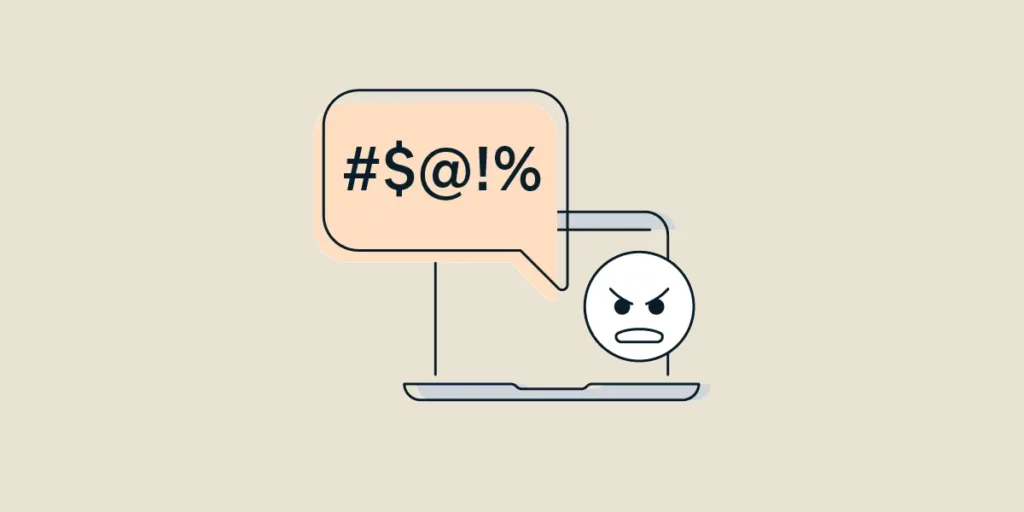Shielded by a computer screen, it’s much easier to make disparaging remarks, insult, or even harass. This form of cyberviolence is far from trivial; among young audiences, it can tragically lead to suicide.
To manage online communication and prevent these dire outcomes, legislation and best practices are being put into place. Notably, there’s Netiquette. What does it entail? How can it be implemented? What are the best practices on the internet? And what are the pitfalls? Discover the answers.
Netiquette - Defining the golden rules
Netiquette combines “net,” meaning Internet, and “etiquette,” in the sense of good manners. Thus, Netiquette refers to a set of conduct guidelines to adopt online. It’s essentially politeness for the digital age.
Why is it essential?
In everyday life, etiquette rules are taught from a young age: saying hello, goodbye, thank you, please… Most people have learned them. When these rules aren’t followed, it’s normal to feel disrespected.
It should be the same online. Unfortunately, that’s not always the case. On platforms like Facebook, Instagram, X, Twitch, and other social networks, it can seem like the Wild West. Hidden behind the anonymity of usernames, many internet users don’t hesitate to insult anyone who dares to post differing opinions.
Here’s some evidence. According to Statista:
- Almost 50% of internet users have encountered racist remarks;
- 40% have encountered xenophobic remarks;
- 40 to 60% of women have experienced online harassment.
Certainly, laws exist against these behaviors. But they only address the most flagrant cases. Beyond remarks laden with racism or homophobia, there are some comments and behaviors that can be equally damaging. This is where Netiquette becomes relevant.

What is the advantage of Netiquette?
Netiquette is a code of good conduct that doesn’t carry legal weight. Violating these rules doesn’t expose you to legal consequences. With one exception: if you commit an online criminal offense, such as inciting violence.
Although breaking Netiquette rules doesn’t result in a court appearance, it isn’t without repercussions. Frequently, those who breach Netiquette find themselves banned from platforms. Hence, understanding its importance is crucial.
Important note: While Netiquette can be likened to a code of good internet conduct, it isn’t universal across platforms. Each site, social network, or community leader can set their own guidelines. For example, on Instagram, these can be found in the terms of use. With a Discord account, look to the rules of each server.
12 rules of good conduct online
Although individual platforms may establish their own Netiquette, some best practices are applicable universally. Here are the main ones:
Empathy is key
Behind every screen is a person with emotions. It’s vital to acknowledge this. This involves adhering to these Netiquette principles:
- Avoid hurtful comments and communicate as though in a face-to-face conversation.
- Keep calm amid provocations (trolls are waiting for you to react).
- Respect others’ spaces to avoid coming across as pushy or intrusive.
- Moderate your language (no more excessive exclamation marks, capital letters, or emoticons).
- Use sarcasm sparingly to dodge misunderstandings and unintended harm.
In general, refrain from saying anything online (on social media or via email) that you wouldn’t say face to face.

Ensuring seamless conversations
In writing, it can be more challenging to convey meaning than in spoken exchanges. Adhering to Netiquette again can clarify communication:
- Remain concise and organized in your expression;
- Be mindful of grammar and punctuation;
- Engage actively in conversations rather than merely consuming content.
Value addition in every content
Across all channels, users seek value. To provide this, adhere to these rules:
- Verify sources to enhance credibility and prevent misinformation.
- Research before posing questions (the answer might already be available).
- Refrain from sharing unsolicited promotions.
Finally, remember to guard your privacy. Outside of private messaging, don’t share personal information such as your phone number, address…
In essence, Netiquette corresponds to good manners online. The primary goal is to maintain a warm atmosphere and courteous behavior among all group members.










